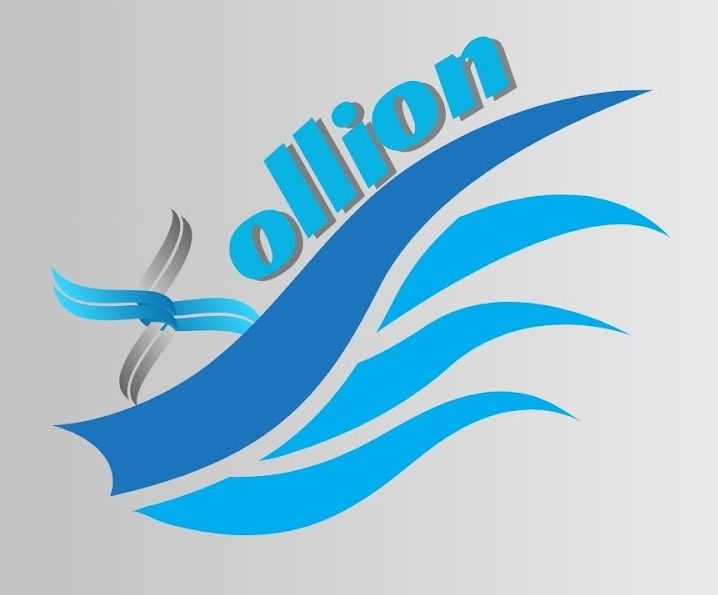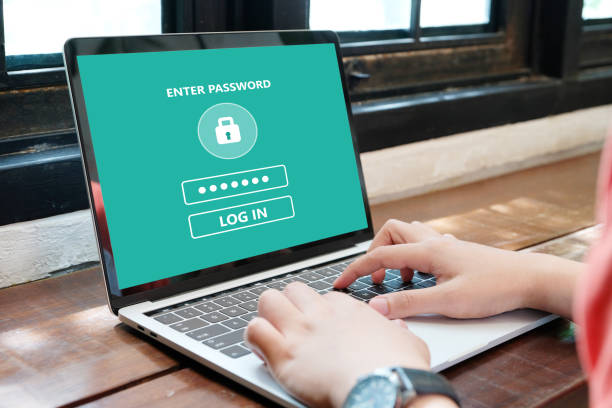The landscape of residential property management is undergoing a profound transformation, driven by advancements in technology.
From streamlining daily operations to enhancing tenant experiences, technology is playing a pivotal role in reshaping the way apartments are managed.
In this comprehensive exploration, we delve into the various ways technology is revolutionizing residential property management, with a specific focus on the impact on property management service in Dubai.
The Rise of Proptech
Understanding Proptech’s Influence
Proptech, short for property technology, has emerged as a game-changer in the real estate industry.
It encompasses a wide range of technologies and innovations designed to improve the efficiency, transparency, and overall experience in property management.
Let’s explore the key areas where technology is making a significant impact.
Smart Home Technology Integration

Enhancing Tenant Comfort and Security
One of the most notable advancements is the integration of smart home technology into residential properties.
Smart thermostats, lighting systems, and security cameras empower tenants to control and monitor their living spaces remotely. Property managers can leverage these technologies to optimize energy efficiency, enhance security, and address maintenance issues promptly.
Property Management Software Solutions
Streamlining Operational Efficiency
Property management software solutions have become indispensable tools for modern property managers. These platforms, such as Buildium, AppFolio, or Yardi, centralize tasks like rent collection, lease management, and maintenance requests. This streamlines operational efficiency, reduces manual errors, and provides real-time insights into property performance.
Communication Platforms for Seamless Interaction
Improving Tenant-Manager Relationships
Effective communication is the cornerstone of successful property management. Communication platforms like Slack, Microsoft Teams, or specialized property management communication tools facilitate seamless interaction between property managers, maintenance staff, and tenants. This leads to quicker issue resolution and improved overall satisfaction.
Digital Marketing and Property Listings
Optimizing Property Marketing Strategies
Technology has revolutionized the way properties are marketed. Digital platforms, social media, and online listing websites have become essential tools for showcasing rental properties. Property managers can reach a wider audience, target specific demographics, and create engaging virtual tours to attract potential tenants.
Data Analytics for Informed Decision-Making
Leveraging Insights for Strategic Planning
The use of data analytics in property management allows for informed decision-making. Managers can analyze tenant trends, track property performance, and forecast future market conditions. This data-driven approach enables proactive decision-making, helping property managers stay ahead in a competitive market.
Technology in Property Management Services in Dubai
Compliance with RERA Guidelines
Integrating Technology with Regulatory Compliance
In Dubai, compliance with Real Estate Regulatory Authority (RERA) guidelines is paramount. Technology plays a crucial role in ensuring adherence to regulations, from automated lease registration processes to digital documentation management. Property management services in Dubai leverage technology to maintain transparency and compliance.
Online Portals for Owner-Tenant Interaction
Enhancing Accessibility and Transparency
Property management services in Dubai often provide online portals for property owners and tenants. These portals serve as centralized hubs for communication, document sharing, and financial transactions. This digital approach enhances accessibility, transparency, and fosters positive relationships between property managers and stakeholders.
Blockchain for Secure Transactions
Ensuring Security in Financial Transactions
Blockchain technology is gaining traction in property management, particularly in Dubai’s real estate sector. It offers secure, transparent, and tamper-resistant transactions. Utilizing blockchain ensures the integrity of financial transactions, providing an added layer of security and trust for property owners and tenants.
Challenges and Considerations in the Tech-Driven Landscape
Cybersecurity Concerns
Safeguarding Against Cyber Threats
As technology becomes more integrated into property management, the risk of cyber threats increases. Property managers must prioritize cybersecurity measures to protect sensitive data, financial transactions, and tenant information. Regular updates and training programs can help mitigate these risks.
Integration Costs and Training
Addressing Implementation Challenges
While technology brings numerous benefits, there are associated costs and challenges. Property managers need to invest in software implementation, staff training, and ongoing support. Overcoming these initial hurdles is crucial to fully harness the potential of technology in property management.
Major Cybersecurity Threats in Property Management
1. Phishing Attacks
Unveiling Deceptive Schemes
Phishing attacks involve fraudulent attempts to obtain sensitive information, often through deceptive emails or messages. Property managers should educate staff and tenants about recognizing phishing attempts to mitigate the risk of data breaches.
Read more about: Top 5 best iPad for PUBG
2. Ransomware Attacks
Holding Data Hostage
Ransomware poses a significant threat wherein malicious software encrypts data, demanding a ransom for its release. Regular data backups, employee training, and robust cybersecurity measures are essential to prevent and respond to ransomware attacks.
3. Weak Passwords and Credential Theft
Strengthening Authentication Practices
Weak passwords make properties vulnerable to unauthorized access. Property managers should enforce strong password policies, implement multi-factor authentication, and educate tenants on creating secure credentials to prevent credential theft.
4. Internet of Things (IoT) Vulnerabilities
Securing Smart Devices
As smart home technology becomes prevalent, IoT devices may present vulnerabilities. Property managers should ensure that smart devices are secure, regularly update firmware, and educate tenants on best practices for securing their connected devices.
5. Insider Threats
Mitigating Internal Risks
Insider threats can come from employees or tenants with access to sensitive information. Implementing access controls, monitoring user activities, and conducting periodic security audits help mitigate the risk of internal threats.
Ensuring Tenant Comfort with Smart Home Technology
1. Transparent Communication
Fostering Open Dialogues
Property managers should communicate openly with tenants about the integration of smart home technology. Clearly explain the benefits, address concerns, and provide avenues for tenants to voice their opinions. Transparent communication builds trust and alleviates apprehensions.
2. Educational Workshops and Resources
Empowering Tenants with Knowledge
Organize workshops or provide resources that educate tenants about smart home technology. Offering tutorials, guides, and demonstrations can help tenants understand the functionalities, privacy features, and security measures associated with smart devices.
3. Customization and Opt-Out Options
Respecting Tenant Preferences
Allow tenants to customize smart home features according to their preferences. Additionally, provide opt-out options for tenants who may feel uncomfortable with certain technologies. Respecting tenant choices fosters a positive relationship between tenants and property managers.
Potential Costs of Implementing Property Management Software
1. Software Licensing Fees
Understanding Licensing Costs
Property managers often face upfront costs associated with licensing fees for property management software. These fees may vary based on the software provider and the range of features included. Property managers should carefully assess their needs and budget constraints.
2. Implementation and Training Costs
Investing in Staff Training
The implementation of property management software may require staff training for effective utilization. Training costs should be factored into the budget, ensuring that employees are proficient in using the software to maximize its benefits.
3. Integration with Existing Systems
Addressing Compatibility Challenges
Integrating new software with existing systems may incur additional costs. Property managers should assess the compatibility of the software with current infrastructure and budget for any necessary modifications or upgrades.
4. Ongoing Maintenance and Support
Planning for Continuous Support
Beyond initial implementation, property managers should budget for ongoing maintenance and support fees. Regular updates, troubleshooting, and access to customer support are essential for the smooth operation of property management software.
5. Data Security Measures
Investing in Robust Security
To address cybersecurity concerns, property managers may need to invest in additional security measures for the software. This includes encryption, secure data storage, and regular security audits to safeguard sensitive information.
Addressing Implementation Challenges
1. Thorough Needs Assessment
Understanding Specific Requirements
Property managers should conduct a comprehensive needs assessment to identify specific requirements before selecting property management software. Understanding unique needs helps in choosing a solution that aligns with the property management goals.
2. Vendor Evaluation and Selection
Choosing Reputable Software Providers
Selecting a reputable software provider is crucial. Property managers should thoroughly evaluate vendors, consider user reviews, and choose a provider with a track record of delivering reliable and secure property management solutions.
3. Comprehensive Staff Training
Ensuring Proficiency Among Employees
Investing in comprehensive staff training is essential for successful software implementation. Property managers should ensure that all employees are proficient in using the software to maximize its potential benefits.
4. Continuous Monitoring and Evaluation
Assessing Performance Regularly
Property managers should establish a system for continuous monitoring and evaluation of the software’s performance. Regular assessments help identify any issues promptly and ensure that the software aligns with evolving property management needs.
5. Feedback Channels for Improvement
Gathering Input from Users
Create feedback channels for property management staff to share their experiences and suggestions regarding the software. User input is valuable for identifying areas of improvement and ensuring that the software meets the practical needs of property managers.
Future Trends: What Lies Ahead?
Virtual Reality (VR) in Property Tours
Revolutionizing Property Viewing Experiences
The use of virtual reality in property tours is an emerging trend. Virtual reality allows potential tenants to explore properties remotely, providing a realistic and immersive experience. Property managers embracing VR technology stand to gain a competitive edge in attracting tech-savvy tenants.
Artificial Intelligence (AI) for Predictive Analytics
Shaping the Future of Property Management
Artificial intelligence is poised to play a significant role in predictive analytics for property management. AI algorithms can analyze vast datasets to predict maintenance needs, market trends, and tenant behavior. This foresight empowers property managers to make proactive decisions and optimize property performance.
Conclusion: Embracing the Tech-Driven Future
In conclusion, the transformation of residential property management through technology is a dynamic and ongoing process.
From smart home integrations to property management software and compliance with RERA guidelines in Dubai, technology is reshaping how properties are managed and experienced.
Embracing these technological advancements is not just a choice but a necessity for property managers looking to stay competitive, enhance operational efficiency, and deliver exceptional experiences to property owners and tenants alike.
As the proptech landscape continues to evolve, staying informed and adaptable is key to thriving in the ever-changing world of residential property management.






